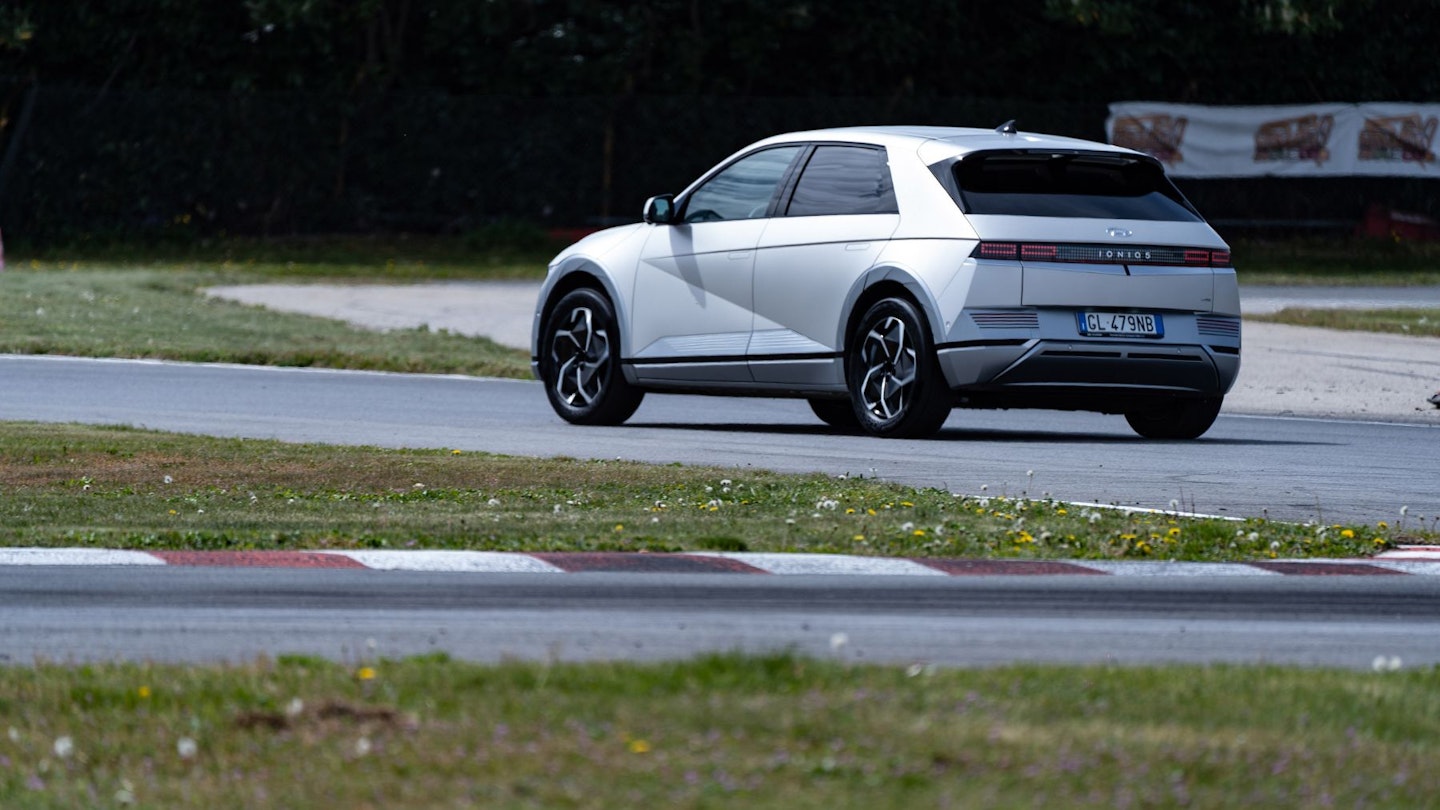The quest to make tyres eco-friendly has been rolling on for a while, but it’s only now that tangible (if not quite on sale yet) tyres have been able to boast proper eco-conscious credentials. Of those, Michelin stand out as a clear frontrunner, boasting a mightily impressive 45% recycled components within the black circle of rubber.
Most impressively of all, this car tyre is designed with EVs in mind. This means these eco-minded tyres feature a lower rolling resistance to improve battery range, are designed to deal with the extra weight an EV will lug around and are bigger to accommodate the larger brakes required to slow heavier EVs down.
The eco-credentials
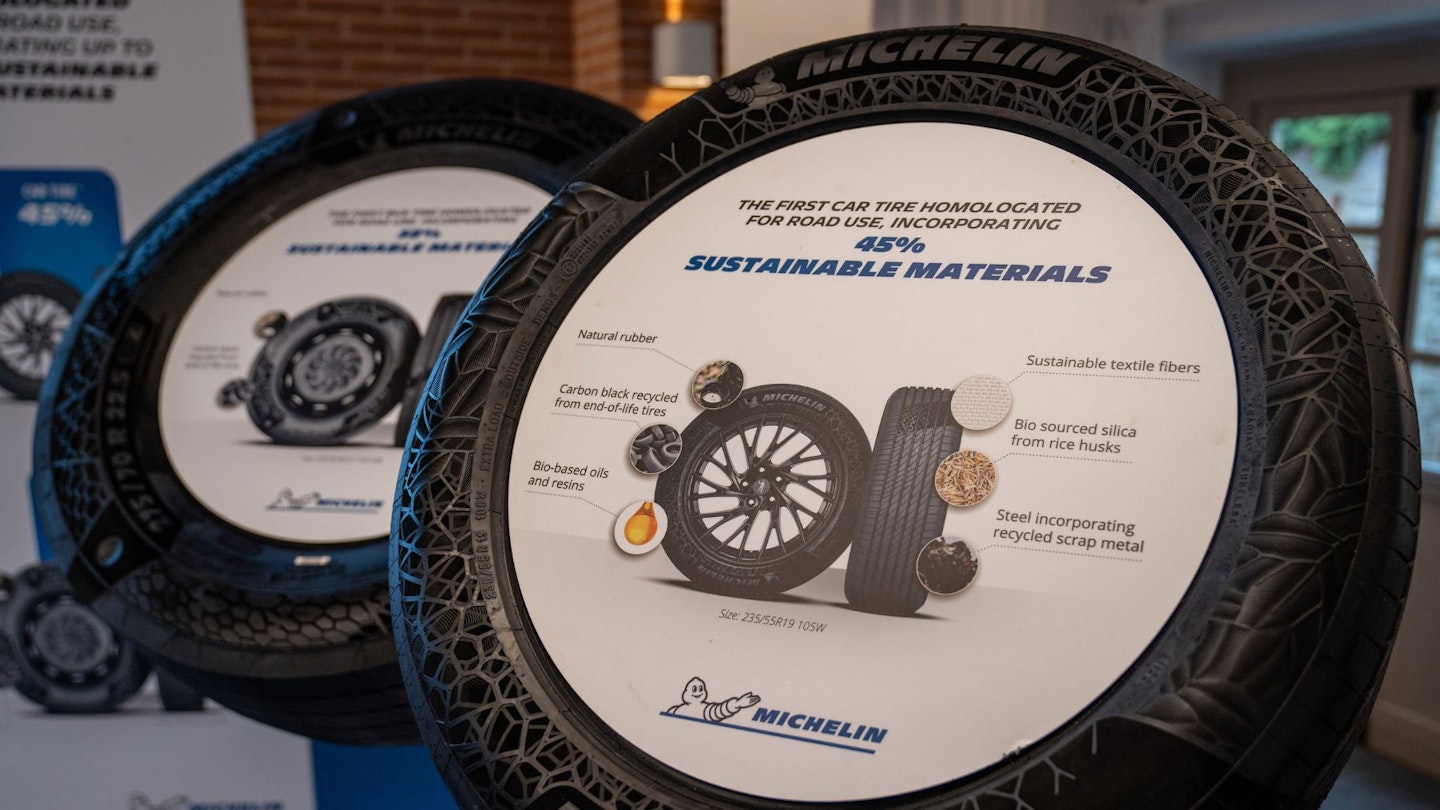
If you imagine tyres are just made up of natural rubber you're sorely mistaken. Michelin us upwards of 200 different components to build up a tyre, each with different and very crucial duties. Michelin, for example, has 3700 patents just for just tyre components.
Some of the components found in these tyres, like natural rubber, are already sustainable, namely because they come from trees. Synthetic components however require some clever rethinking if they're to be properly sustainable.
Carbon black for example, a component that's crucial for improved durability and the overall lifespan of the tyre is sourced from end-of-life tyres, while the steel belting within the tyre is sourced from recycled scrap.
Other environmentally friendly touches to this tyre include silica sourced from rice husks as opposed to sand. Silica is essential for lowering rolling resistance which improves efficiency but a sand shortage is a real concern for the world. Bruno de Feraudy, Director of Scientific Communication and Innovation, verified that using beach sand for silica is not part of Michelin's sustainability strategy.
The bigger picture for Michelin
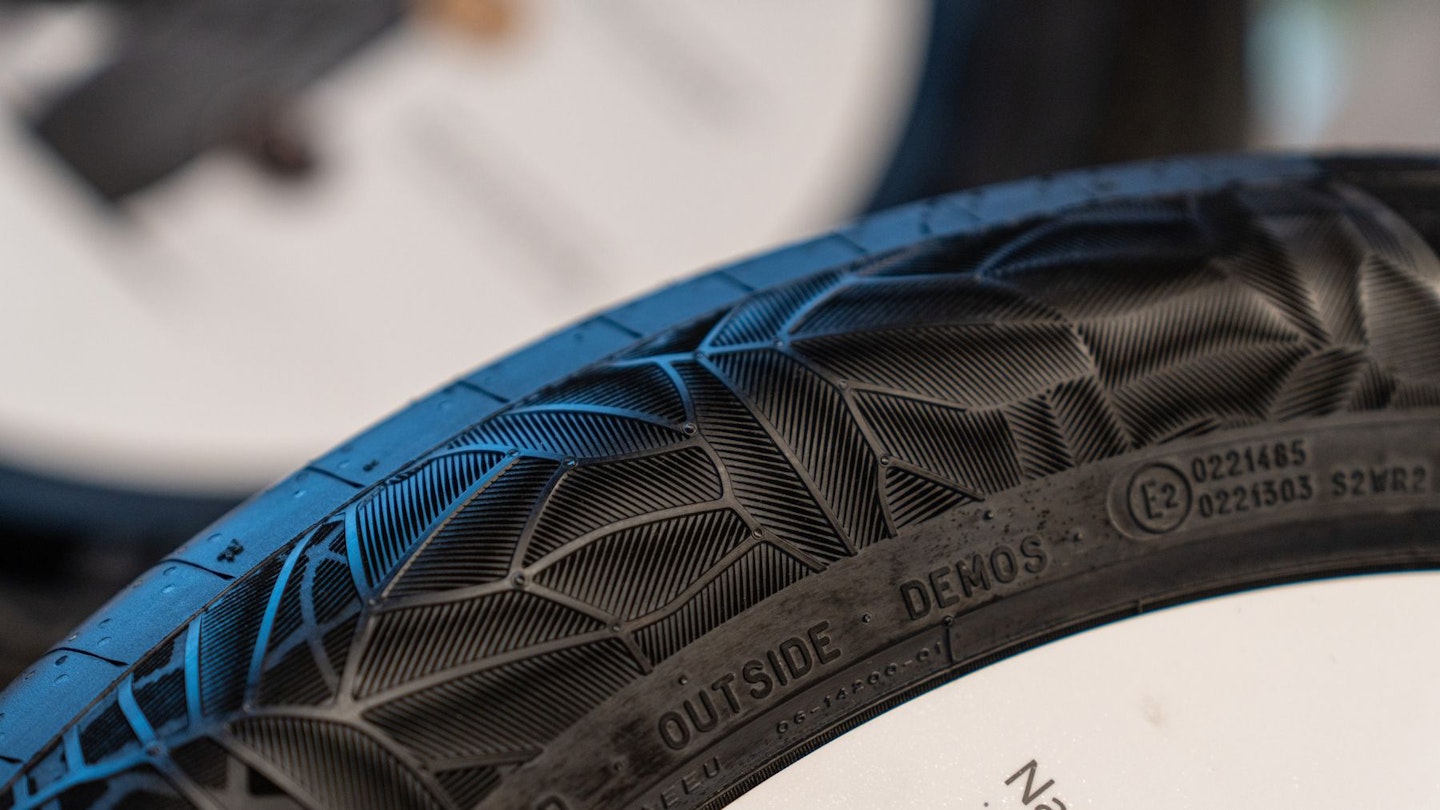
This tyre isn't a one-off commitment, neither is the 58% recycled bus tyre also displayed. Michelin is committed to 40% renewable material in every tyre by 2030 and 100% renewable tyres by 2050.
Michlein's own definition of renewable is worth noting too, de Feraudy spelt out that Michlien would only consider a substance sustainable if it was either recycled or could be replaced within the lifespan of a human.
The specific requirements of EV tyres are at the forefront of Michlein's future tyre strategy, but Michelin's strategy is flexible. Support for non-EV tyres could easily continue into the future. Cyrille Roget, Director of Scientific Communication and Innovation, confirmed that while EV tyres were the biggest priority for the brand, the commitment to reducing rolling resistance and tyre weight would also benefit any future ICE engines.
Roget added Euro 7 legislation will help push all tyre manufacturers to up efforts to improve the sustainability of tyres too. Microplastics shed from tyres are targeted within this legislation and Roget said that in testing, Michelin tyres emitted 1.7kg of particles over 20000km, some of the worst ditch finders would produce 8kg over the same period.
This sustainability extends beyond the mere tyre to include the entire life cycle of the tyre. The Cuneo Plant in Italy for example is aiming to cut CO2 emissions by 50% by 2030 from 2010 levels. This is being achieved by increasing the use of solar and geothermal energy, and more energy-efficient methods of tyre curing. Add in that 90% of Michelin tyres are collected and repurposed at the end-of-life stage and it's clear that Michelin has a commitment to sustainability.
How do environmentally sustainable tyres handle?
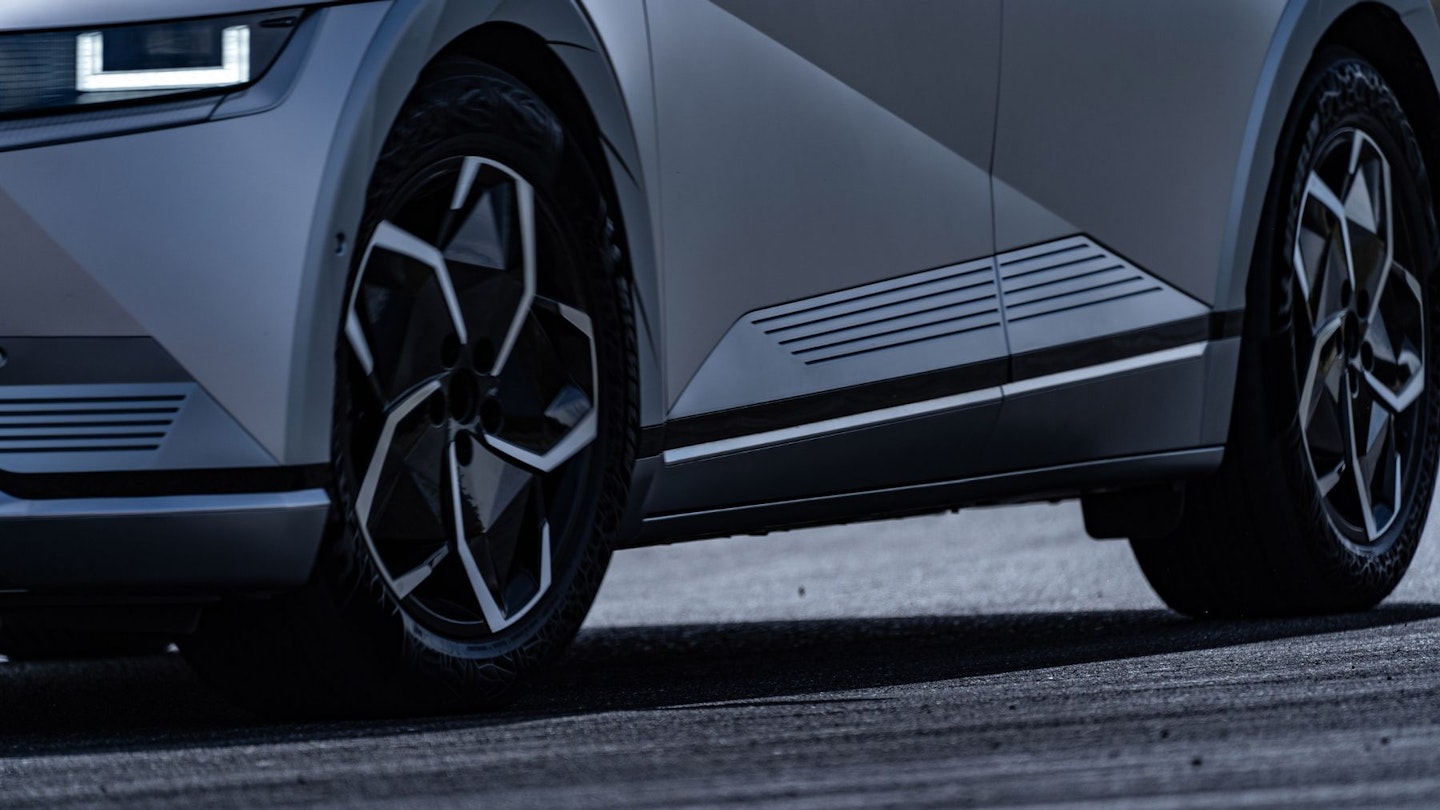
These tyres are designed with EVs in mind, a purposeful decision by Michelin as the world switches to electrification. Fitted to a Hyundai Ioniq 5 (appropriate as the chassis was jointly developed with Michelin), these tyres are homologated for road use and should go on sale in 2025.
The immediate concern with focusing on environmentally-sourced tyre components is that it may come with a trade-off in grip. The good news is that these tyres proved to be just competent, offering plenty of grip. Road noise was also minimal, another increasing concern with the switch to electrification.
There's no doubt that the weight of the EV is noticeable on this go-kart track in the shadow of the Swiss Alps, but you'd be hard-pressed to see any shortcomings in this tyre's performance.
Wanting some of this tech in your tyres, take a look at Michelin's current eco tyres:
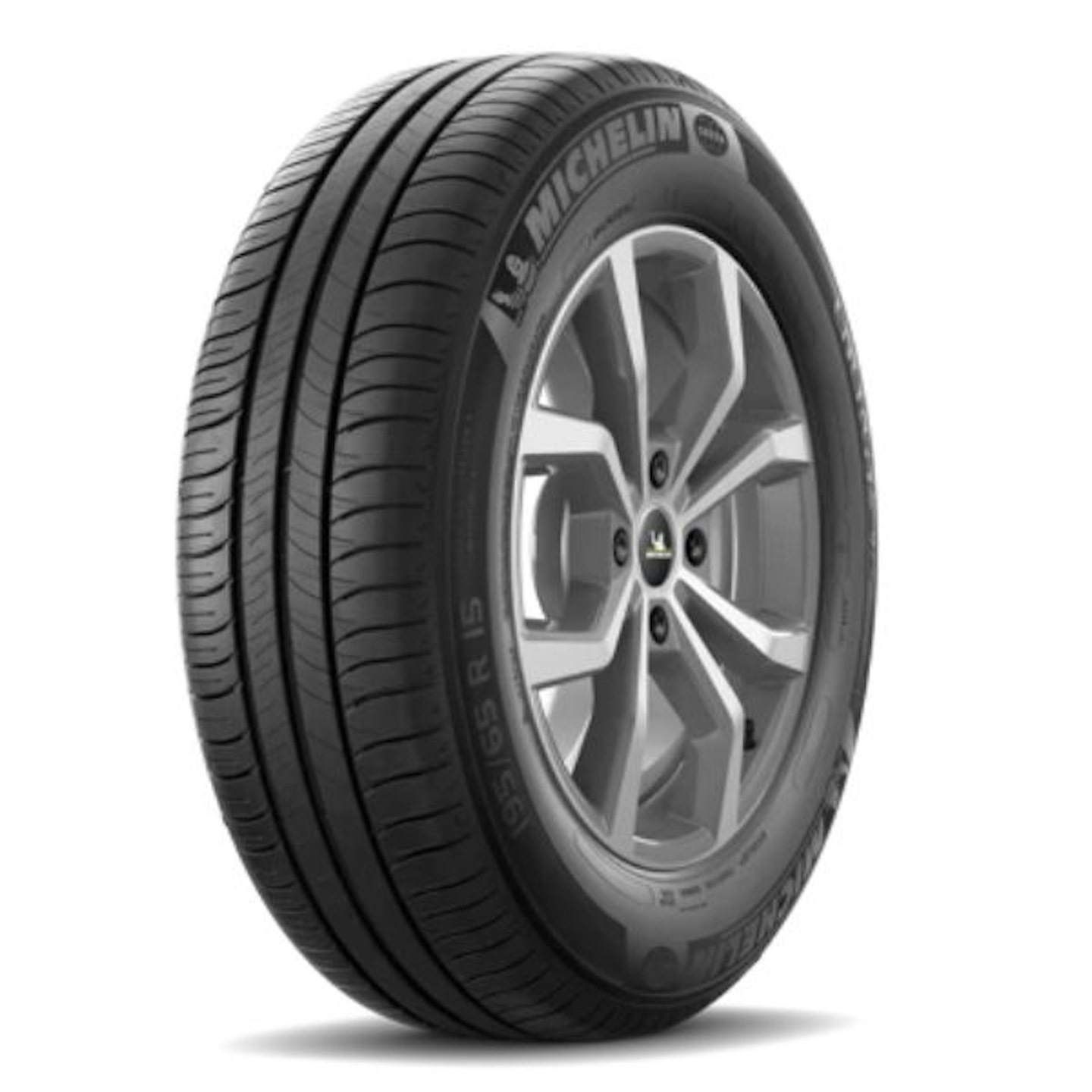 Photo: Michelin
Photo: Michelin www.kwik-fit.com
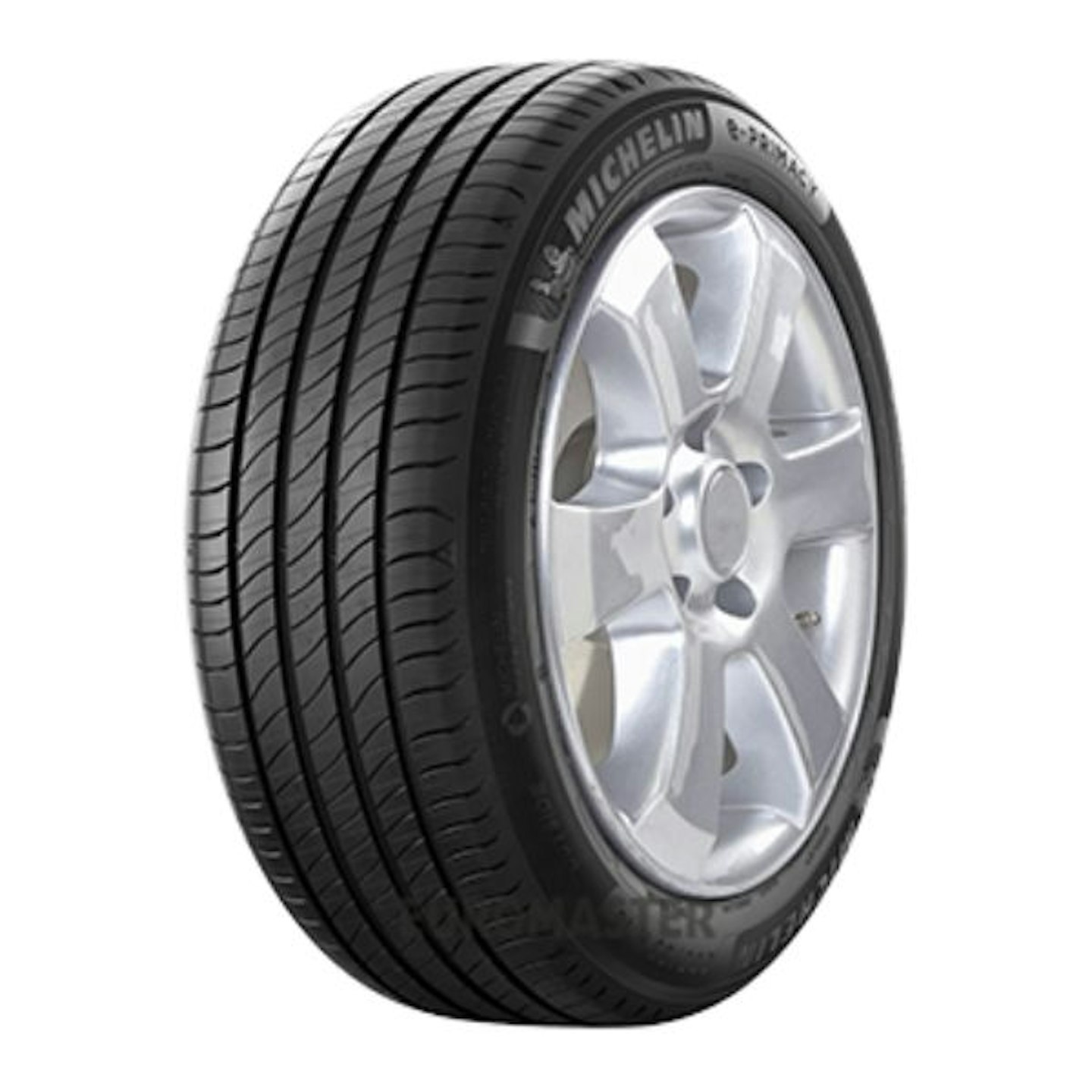
www.atseuromaster.co.uk
Ryan Gilmore is the Deputy Autos and Tools Editor for CAR, specialising in car cleaning and hand tools. With an MA in Automotive Journalism, when he's not testing buckets he can be found looking at old Porsches.
